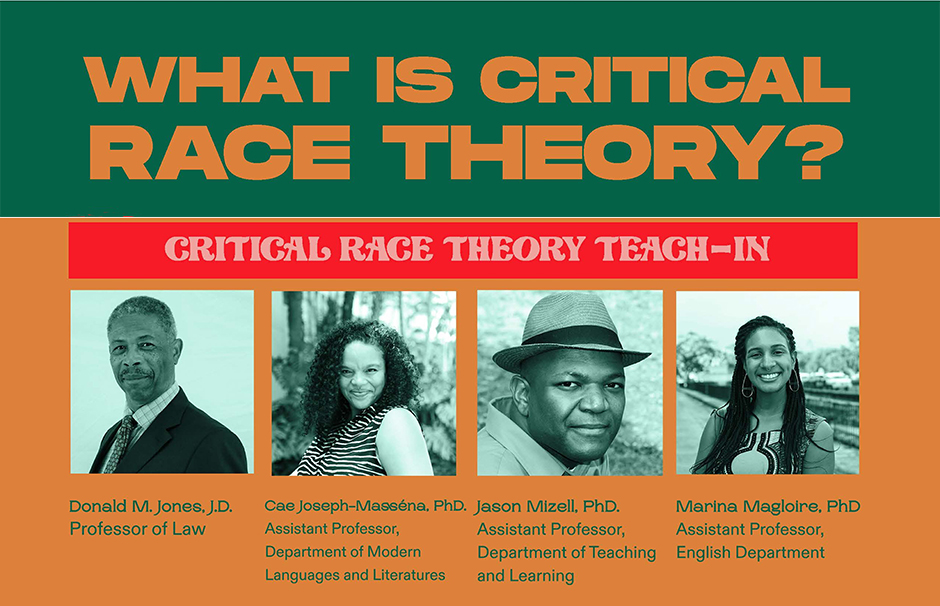This summer, Florida’s Board of Education joined the ongoing wave of legislatures, school boards, and policymakers in other states in banning the teaching of critical race theory, which holds that racism is embedded in the policies, laws, and procedures of the U.S.’s social institutions, leading to different racial outcomes in criminal justice, education, housing, health care, and the labor market.
To explain the origins of critical race theory (CRT), and why it has become such a political and cultural flashpoint, the University of Miami’s new Center for Global Black Studies is hosting a virtual conversation on the topic with a panel of University scholars on Friday, Oct. 1.
“At its core, the current national uproar around critical race theory is a pressing debate about coming to terms with our nation’s troubling racial past and its contemporary legacies,” said Donette Francis, associate professor of English and co-director of the center, which she said is committed to providing a platform to engage multiple publics in thoughtful dialogues about issues shaping our present and futures. “We have chosen to make this our first public event because the stakes of this conversation matter to our intellectual commitments and to building a culture of belonging at the University of Miami.”
The panel includes:
- Law Professor Donald Jones, the former co-chair of the School of Law’s 1995 CRT workshop, and the author of articles and books inspired by the subject, who will discuss CRT’s origin in the law. “The theory began as a means for scholars of color to challenge the bogus allegation of neutrality and colorblindness in the legal system,” Jones said. “A backlash has begun portraying CRT as Marxism and as an attack on American values and on white people. Florida’s ban is an effort to silence teachers and to brand the discussion of racism as somehow racist.”
- Assistant Professor Cae Joseph-Massena, from the College of Arts and Sciences Department of Modern Languages and Literatures, who will discuss the international dimensions of racial reckoning, specifically the highly publicized backlash against CRT in French academia. “While I am not a critical race theory scholar, per se, as a Black feminist scholar whose research and teaching centers on francophone Black women writers, my work denounces white supremacy along with other intersecting systems of dominations such as sexism, classism, homophobia or ableism.”
- Assistant Professor Jason Mizell, from the School of Education and Human Development’s Department of Teaching and Learning, who will discuss CRT within the realm of education. A public-school teaching veteran, Mizell said the theory “provides a prismatic lens that allows researchers and practitioners to examine the many facets that comprise the lives of people of color and those who were born into the hegemonic majority. It does not shy away from making us look at how racism has shaped programs and policies.”
- Assistant Professor Marina Magloire, from the College of Arts and Sciences Department of English, who will discuss “the framework of Black feminist theory and how literary works from Black women are sometimes labeled as critical race theory, when they are not. What is so radical about the literary works of Black women that they are labeled as critical race theory?” she asked. “Why are they viewed as threatening?”
The “What is Critical Race Theory?” virtual panel discussion will be held on Oct. 1 from 12:30 to 2 p.m. Registration is open to the University community, and beyond.

